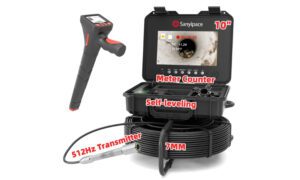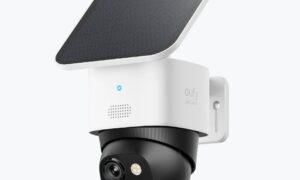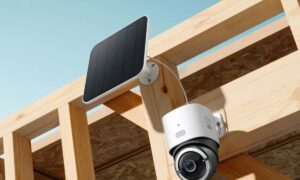When it comes to photography and videography, lenses are as crucial as the camera body itself. For Canon users, the question often arises: Can Canon lenses fit all cameras? This blog will delve into the compatibility of Canon lenses with various camera bodies, explain the different types of Canon lenses, and provide essential tips for making the best lens choices for your photography or videography needs.
Understanding Canon Lens Types
Canon offers a range of lenses designed for different types of cameras and shooting styles. Understanding these categories is the first step in determining compatibility.
1. Ef Lenses
- Definition: Canon’s Electro-Focus (EF) lenses were introduced in 1987 and are compatible with Canon’s full-frame and APS-C DSLR cameras.
- Compatibility: EF lenses can be used with Canon’s full-frame cameras (like the Canon EOS 5D series) and APS-C cameras (like the Canon EOS 90D) without any issues.
- Features: They typically feature a wider aperture, providing better low-light performance and depth of field control.
2. EF-S Lenses
- Definition: EF-S lenses are designed specifically for Canon’s APS-C-format DSLRs.
- Compatibility: These lenses can only be used on APS-C cameras (like the Canon eos Rebel series) and cannot be mounted on full-frame Canon cameras.
- Limitations: If you own a full-frame camera and try to attach an EF-S lens, you’ll encounter a physical obstruction due to the design of the lens mount.
3. RF Lenses
- Definition: RF lenses are made for Canon’s mirrorless camera systems, particularly those in the eos R series.
- Compatibility: RF lenses can only be mounted on Canon’s mirrorless cameras and are not compatible with DSLR cameras without an adapter.
- Advantages: RF lenses feature advanced optics and improved performance, making them ideal for professional videography and photography.
4. Canon Lenses for Other Brands
- Third-Party Lenses: Several third-party manufacturers (like Sigma, Tamron, and Tokina) produce lenses compatible with Canon mounts. However, compatibility varies, so always check the manufacturer’s specifications.
- Adapters: For those who want to use Canon lenses on non-Canon cameras, lens adapters are available. However, using adapters can sometimes affect performance and functionality, especially with autofocus.
Key Factors to Consider
When considering whether Canon lenses fit all cameras, several key factors must be considered.
1. Mount Type
Each camera brand has its unique mount type. Canon lenses with EF or RF mounts will only fit Canon cameras with corresponding mounts. Always ensure that the lens mount type matches the camera body to avoid compatibility issues.
2. Crop Factor
If you use EF lenses on an APS-C camera, you need to consider the crop factor. For Canon, the crop factor is typically 1.6x. This means that a 50mm lens will behave like an 80mm lens on an APS-C camera. Understanding this can help you select the right focal length for your shooting needs.
3. Sensor Size
Full-frame cameras can utilize both EF and EF-S lenses, while APS-C cameras can only use EF-S and EF lenses. If you plan on upgrading your camera in the future, consider investing in EF lenses, as they will remain compatible with both APS-C and full-frame bodies.
4. Autofocus and Image Stabilization
When using adapters to mount Canon lenses on other brands, autofocus performance may be slower or less reliable. Image stabilization features may also be affected. For optimal performance, it’s best to use lenses with the same brand camera body.
FAQs About Canon Lenses and Camera Compatibility
Q1: Can I use Canon EF lenses on a Canon eos R mirrorless camera?
Yes, you can use Canon EF lenses on the eos R series cameras using an EF to RF adapter. This allows you to maintain full functionality, including autofocus and image stabilization.
Q2: Are Canon lenses interchangeable with other brands?
While Canon lenses are primarily designed for Canon cameras, some third-party brands produce lenses compatible with Canon mounts. However, using Canon lenses on other brands often requires an adapter, which can affect performance.
Q3: Can I use my EF-S lens on a full-frame Canon camera?
No, EF-S lenses are not compatible with full-frame Canon cameras due to their design. If you attempt to mount one, it may not physically fit.
Q4: What is the benefit of using an adapter for Canon lenses?
Using an adapter allows you to utilize your Canon lenses on cameras of different brands, expanding your options. However, be mindful that this may affect autofocus speed and overall performance.
Q5: How do I know which Canon lenses are compatible with my camera?
Check your camera model specifications for the type of mount it uses. You can also refer to Canon’s official website or user manuals for detailed compatibility information regarding lens options.
Conclusion
Canon lenses are not always compatible with all cameras. But knowing the types of Canon lenses and their compatibility can help you make smart choices. Whether you’re using EF, EF-S, or RF lenses, knowing your camera’s mount type and how to use each lens will help you take the best pictures and videos.
Investing in high-quality lenses compatible with your camera will greatly enhance your image quality and creative possibilities. By thinking about things like the crop factor, sensor size, and autofocus performance, you’ll be able to choose the right lens for your needs. This will make sure that your Canon gear helps you take amazing pictures every time.



































